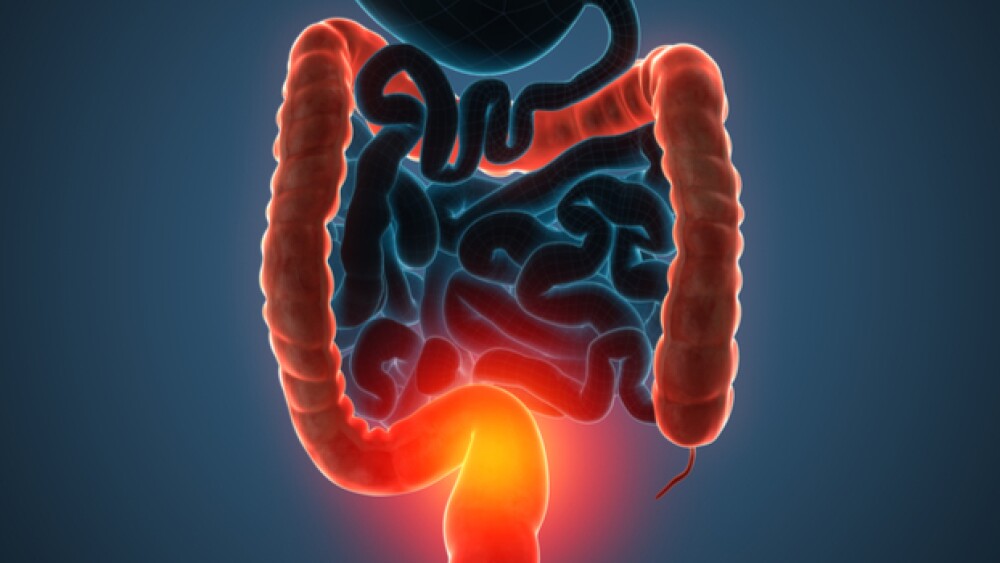New late-stage data released by Janssen shows that a single dose of Stelara can induce clinical reemission and response in adult patients with moderate to severe ulcerative colitis who have not had positive response from previous treatment options.
New late-stage data released by Janssen shows that a single dose of Stelara can induce clinical remission and response in adult patients with moderate to severe ulcerative colitis who have not had a positive response from previous treatment options.
The new findings from the Phase III UNIFI Study were presented today at the American College of Gastroenterology Annual Scientific Meeting 2018. Results from the trial showed that after eight weeks of taking a single intravenous dose of Stelara (ustekinumab), patients saw “clinical remission in a significantly greater proportion of UC patients.” In its announcement, Janssen noted that 15.6 percent of patients who received 130 mg of Stelara and 15.5 percent of patients who received ~6 mg/kg of Stelara saw remission in comparison to placebo patients. Only 5.3 percent of patients on placebo saw the same kind of remission response, the company said.
Ulcerative colitis is a debilitating inflammatory bowel disease in adults and children, with limited therapeutic management options for many patients. It is estimated that close to 1 million patients with ulcerative colitis live in the United States.
Janssen also said that at Week 8, the trial data showed Stelara hit some of its major secondary endpoints, which includes the proportion of patients in clinical response, endoscopic healing, as well as health-related quality of life scores.
In addition, Janssen said that at least 50 percent of study participants were considered biologically refractory, and 17 percent had a history of inadequate response or intolerance to any anti-TNF antibody and Takeda’s Entyvio (vedolizumab).
“The significant rates of remission observed in this refractory population through the 8-week induction, coupled with a safety profile that is well-documented through years of research and use in other immune diseases, demonstrate the potential for ustekinumab as an effective treatment for ulcerative colitis.” lead investigator Bruce E. Sands said in a statement.
There were other significant points of interest discovered at Week 8. Of the patients who received 130 mg of Stelara, 26.3 percent experienced endoscopic healing, compared to 13.8 percent of placebo patients. For the patients who received ~6 mg/kg of Stelara, 27 percent experienced endoscopic healing compared to 13.8 percent of placebo patients. Endoscopic healing was defined as a Mayo endoscopy subscore of 0 (normal mucosa or inactive disease) or 1 (mild disease activity), Janssen said.
Also, Janssen said that 51.3 percent of patients who received 130 mg of Stelara and 61.8 percent of patients receiving ~6 mg/kg of Stelara achieved a clinical response, compared to 31.3 percent of placebo patients. Clinical response, Janssen said, was defined as a decrease from baseline in the Mayo score by ≥30 percent and ≥3 points, with either a decrease from baseline in the rectal bleeding subscore ≥1 or a rectal bleeding subscore of 0 or 1.
Philippe Szapary, head of clinical development at Janssen Research and Development, said Stelara is the only biologic that targets interleukin (IL)-12 and IL-23 cytokines, which are believed to play a role in immune-mediated diseases, like ulcerative colitis.
“These induction data from the Phase III UNIFI study underscore the potential for this unique pathway in the treatment of ulcerative colitis, which may lead to a new effective and safe treatment option for ulcerative colitis patients in the future,” Szapary said in a statement.
In addition to the UNIFI study data, Janssen is also presenting results from the IM-UNITI open-label long-term extension (LTE) study for ustekinumab in the treatment of adults with moderate to severe Crohn’s disease.





